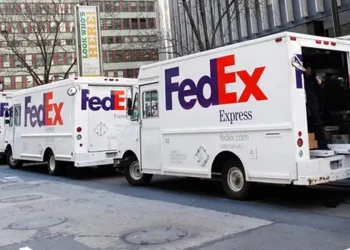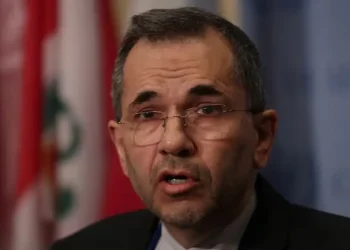As Donald Trump increasingly infuses his campaign with Christian trappings while coasting to a third Republican presidential nomination, his support is as strong as ever among evangelicals and other conservative Christians.
“Trump supports Jesus, and without Jesus, America will fall,” said Kimberly Vaughn of Florence, Kentucky, as she joined other supporters of the former president entering a campaign rally near Dayton, Ohio.
Many of the T-shirts and hats that were worn and sold at the rally in March proclaimed religious slogans such as “Jesus is my savior, Trump is my president” and “God, Guns & Trump.” One man’s shirt declared, “Make America Godly Again,” with the image of a luminous Jesus putting his supportive hands on Trump’s shoulders.
Many attendees said in interviews they believed Trump shared their Christian faith and values. Several cited their opposition to abortion and LGBTQ+ rights, particularly to transgender expressions.
Nobody voiced concern about Trump’s past conduct or his present indictments on criminal charges, including allegations that he tried to hide hush money payments to a porn actor during his 2016 campaign. Supporters saw Trump as representing a religion of second chances.
And for many, Trump is a champion of Christianity and patriotism.
“I believe he believes in God and our military men and women, in our country, in America,” said Tammy Houston of New Lexington, Ohio.
“I put my family first, and on a larger scale, it’s America first,” said Sherrie Cotterman of Sidney, Ohio. “And I would any day of the week, take a president that openly knows he needs the strength from God over his own.”
In many ways, this is a familiar story.
About 8 in 10 white evangelical Christians supported Trump in 2020, according to news agencies VoteCast, and Pew Research Center’s validated voter survey found that a similar share supported him in 2016.
But this is a new campaign, and that support has remained durable — even though Republican voters in the early primaries had several openly conservative Christian candidates to choose from, none of whom faced the legal troubles and misconduct allegations that Trump does. In the Iowa, New Hampshire and South Carolina Republican primary contests earlier this year, Trump won between 55% and 69% of white evangelical voters, according to news agencies VoteCast.
Trump even criticized one competitor, Florida Gov. Ron DeSantis, for signing strict abortion curbs into law. In past years, some Trump surrogates have portrayed Trump as friendly to the LGBTQ+ community.
Trump was the only Republican candidate facing scores of criminal charges, ranging from allegations that he conspired to overturn his 2020 election defeat to his current trial on allegations he falsified business records in seeking illegally to sway the 2016 election with hush money to porn actor Stormy Daniels.
Trump was also the only GOP candidate with a history of casino ventures and two divorces, as well as allegations of sexual misconduct — one of them affirmed by a civil court verdict.
Republican primary voters still overwhelmingly chose Trump.
This has frustrated a minority of conservative evangelicals who see Trump as an unrepentant poser, using the Bible and prayer sessions for photo props. They see him as lacking real faith and facing credible, serious misconduct allegations while campaigning with incendiary rhetoric and authoritarian ambitions.
Karen Swallow Prior, a Christian author and literary scholar who has spoken against fellow evangelicals’ embrace of Trump, said this support in 2024 is familiar but “intensified.”
In the past, she said Trump supporters hoped but weren’t certain that Trump shared their Christian faith.
“Now his supporters believe themselves,” she said. “Despite the fact that Trump clearly wavers on abortion and he wavers on LGBTQ issues, those things are just ignored, they’re just erased out of the narrative.”
At the Ohio rally, several attendees cited their belief that Trump has followed the Christian path of repenting and starting a new life.










 American Dollar Exchange Rate
American Dollar Exchange Rate